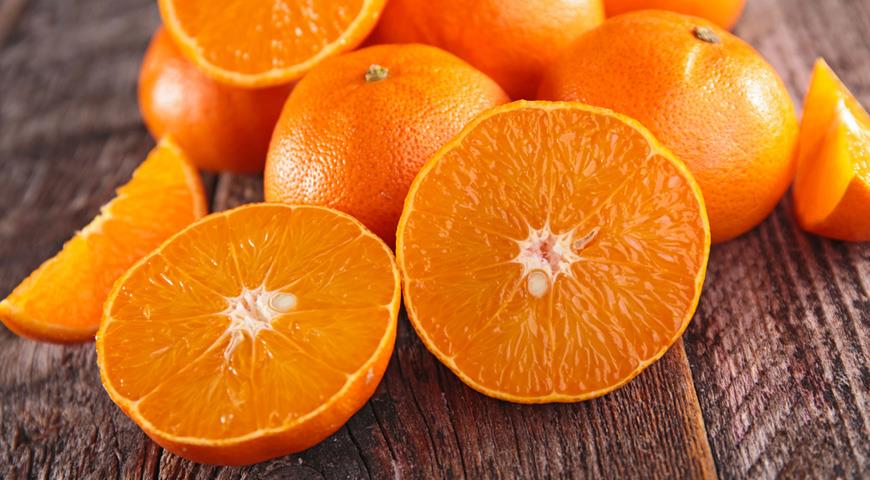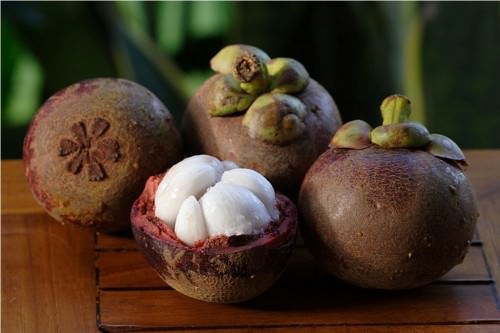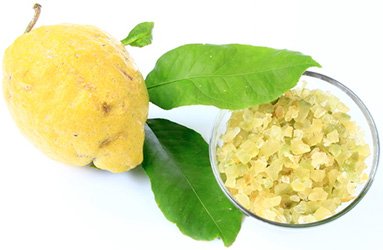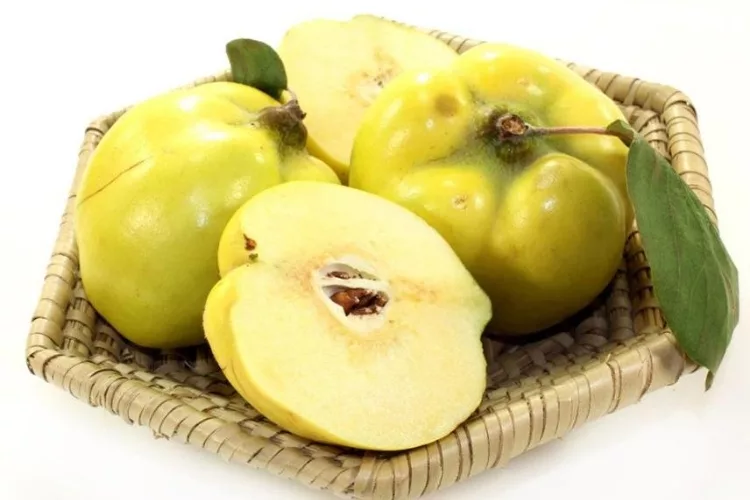15 Appealing Facts About Pomelo
by Editorial Staff
A huge citrus miracle - pomes can be found on supermarket shelves. A juicy pomelo is a great option for a healthy vitamin snack, interesting salad addition, or dessert for those on a diet.
Facts About Pomelo

- Pomelo is not a hybrid and not a product of genetic engineering, as many think. This is the largest citrus! It grows on trees up to 15 s in height and native to Southeast Asia and China. Today, five varieties of pomelo are cultivated, four with pale yellow pulp and one with pink, aromatic and tasty.
- It is believed that the larger the fruit, the juicier the pulp. Therefore, choose fruits weighing one kilogram or more.
- The calorie content of pomelo is only 38 kcal per 100 g, it is possible to even for those who follow a diet. Those who suffer from increased acidity of the stomach need to use the fruit with caution.
- Pomelo is 85% water and vitamins. For example, 200 g of pulp contains almost a daily intake of vitamin C, which is necessary to support immunity in the winter.
- This citrus contains a lot of vitamin E, which is also called the "vitamin of beauty" for its ability to influence the aging process, slowing it down.
- The pomelo contains a fairly large amount of potassium, magnesium, vitamin B3, copper, and iron. Potassium stabilizes the heart, magnesium helps to resist stress, improves the functioning of the nervous system and the quality of sleep, vitamin B3, strengthens the walls of blood vessels, copper and iron have a beneficial effect on the process of hematopoiesis.
- Pink pomelo extract is often added to skin and hair care products. It has anti-aging and whitening properties, reduces pigmentation, and also improves skin firmness. Vitamin B1 and zinc, contained in the fruit, improve hair growth and prevent dandruff.
- Another, no less interesting fact - the pomelo is very much loved in China since for the Chinese this fruit is the most valuable gift that brings happiness, success, and abundance. The first mentions of this healthy citrus are found in Chinese treatises right before the birth of Christ, and they are still happy to give it on various holidays, especially on the eve of the New Year.
- The Chinese (as well as from the peels of other citrus fruits) are used to prepare medicines for traditional and non-traditional Chinese medicine from pomelo peels.
- It is believed that the pomelo has a sweetish taste and does not taste bitter at all, unlike grapefruit. This is not entirely true. Bitterness is present in the pomelo, and it is quite strongly felt, but it is not found in the pulp of the fruit, but in its shell (the white peel that surrounds the pulp). And if you remove it completely, and the fruit is cleaned easily enough, then you really only feel the sweetness.
- Therefore, in order to properly clean the pomelo, it is not enough just to cut it and free it from its thick peel, like an orange. Under the main skin, there will be a thin white skin that fits the flesh, which is also better to remove and divide the fruit into slices. And then you will get real pleasure from this fruit!
- A good ripe fruit should have a rich aroma, a pale green or yellow color, and be slightly springy, like a "rubber ball". Of course, it shouldn't be damaged in any way - a smooth and shiny fruit is the perfect pomelo.
- It is better to eat citrus fresh, like any other fruit. Great salads with pomelo, desserts, especially marmalade and jam. It goes well with meat and fish, an excellent combination with any seafood, spicy dishes, and sweets. Since the fruit is absolutely non-calorie (about 38 calories per 100 g), it is used in dietary meals.
- Pomelo pulp is not only tasty but also healthy, as it is rich in pectin. That is why this fruit is used in the preparation of marmalade. In addition to the fact that pectin also improves metabolism, it is a known fact that pectin cleanses the body of pesticides, toxic and radioactive substances!
- Interestingly, our exotic fruit is also an antidepressant, as it contains substances that strengthen the nervous system and help fight bad mood.
 Also Like
Also Like

Clementines are a hybrid of an orange and a mandarin, and this variety was bred by the French priest and breeder Father Clement, after whom the exotic fruit got its name. Externally, clementines are similar to tangerines with one difference – there are pr...

10 Interesting Facts About Arugulas
Indau, eruka, rocket, sowing caterpillar – this plant has many names, but whatever you call it less useful for health, it does not become from this. Arugula has a pleasantly bitter flavor that can add a spicy taste to any dish. Many who have tried it once...

10 Interesting Facts About Asparagus
All over the world, spring is considered the season of asparagus, when the first young juicy shoots appear from the ground. In our country, you don’t even have to look for local asparagus in the markets – you need to grow it (and it doesn’t grow in one ye...

10 Interesting Facts About Broccoli
There is more vitamin C in broccoli cabbage than in lemon, A – almost as much as in carrots, and the rest of the trace elements are certainly not less than in related vegetables of the cabbage family. It should be treated with caution by those who have in...

10 Interesting Facts About Cauliflowers
Cauliflower is superior to all other varieties in taste and nutritional content. What do you know about Cauliflowers? We will tell you 10 interesting facts about him, and if you have something to add, be sure to leave your comment under this post! Caulifl...

10 Interesting Facts About Dills
Many people actively use dill when preparing a wide variety of dishes; this seasoning is considered truly universal. What do you know about Dills? We will tell you 10 interesting facts about him, and if you have something to add, be sure to leave your com...

10 Interesting Facts About Fennels
Not the most frequent guest in our kitchens, but his every appearance should be noted. What do you know about Fennels? We will tell you 10 interesting facts about him, and if you have something to add, be sure to leave your comment under this post! The ho...

10 Interesting Facts About Garlic
Many doctors recommend eating garlic, in the absence of contraindications, of course. This is an extremely useful product, notable for the fact that when cooked or dried, it retains a significant proportion of useful substances. What do you know about Gar...

10 Interesting Facts About Greens
We know vegetables and greens are good for you. But what exactly is their strength and why are they so important in the daily diet? After examining the opinions of people leading a healthy lifestyle, we are a selection of 10 interesting facts. What do you...

10 Interesting Facts About Lettuce
Lettuce is known all over the world and has been actively used since the 20th century. People can grow lettuce on their own to consume its leaves or stump. It should be noted that lettuce varieties such as Roman are produced mainly in Europe (in the Medit...

10 Interesting Facts About Parsley
Even the usual seasoning can harbor a lot of unusual things. What do you know about Parsley? We will tell you 10 interesting facts about him, and if you have something to add, be sure to leave your comment under this post! Did you know that there are curl...

10 Interesting Facts About Pumpkins
Orange, juicy, bright, tasty, useful! Pumpkin is a real symbol of autumn. And what do you know about pumpkins? We will tell you 10 interesting facts about pumpkins, and if you have something to add, be sure to leave a comment under this post! In fact, the...

12 Interesting Facts About Daikon
Due to the high content of vitamins, daikon strengthens the immune system, and its phytoncides kill microbes. Daikon removes excess fluid from the body, cleanses the liver and kidneys, stimulates the stomach and intestines, and is even able to dissolve ga...

12 Interesting Facts About Mangosteen
We have already written about dragon fruit – one of the most popular fruits in Southeast Asia, especially in Thailand. We decided to continue the series of notes dedicated to fruits, which can be seen in abundance on Thai food stalls. The turn of mangoste...

12 Interesting Facts About Mustard
Mustard is an annual plant that grows up to 60 cm in height. The bright yellow flowers form seed pods, each containing about 6 seeds. What do you know about Mustard? We will tell you 12 interesting facts about him, and if you have something to add, be sur...

Citron is a rare fruit that belongs to the citrus family. At the moment, it grows only in some rather limited areas. Theophrastus, Virgil, Martial also spoke about this fruit, it is also mentioned in the Bible. The history of the origin of this citrus tre...

Guava is an evergreen plant of the Myrtle family, which includes about 100 species. This plant is native to the tropics of South America, but today it is grown in other parts of the world. The guava fruit is widely used for making desserts. Guava fruits a...

13 Interesting Facts About Beans
Many dishes contain beans, and in some countries, they are an integral part of the national cuisine, for example, in Mexico. What do you know about Beans? We will tell you 13 interesting facts about him, and if you have something to add, be sure to leave ...

14 Fascinating Facts About Chaenomeles
Japanese quince, or Japanese Chaenomeles, is a representative of the Plum subfamily, the Pink family, of the order Rosaceae. Japanese quince is small in height (grows from 1.5 to 4 m) with falling leaves (rarely semi-evergreen) bush or low tree, which is ...

14 Interesting Facts About Basil
Basil is considered an Indian spice and is used as a condiment in many cuisines around the world. What do you know about basil? We will tell you 14 interesting facts about him, and if you have something to add, be sure to leave your comment under this pos...
Comments for "15 Appealing Facts About Pomelo"
 |
 |
 |
 |
Get FREE Recipe Gifts now. Or latest free cooktops from our best collections.
Disable Ad block to get all the secrets. Once done, hit any button below
 |
 |
 |
 |